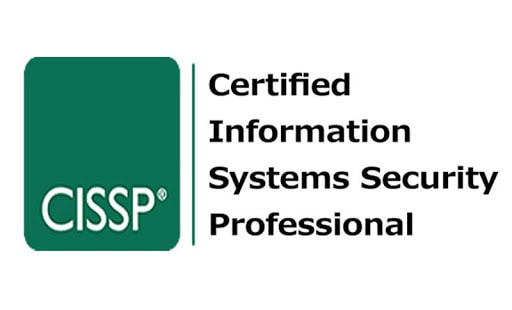In today’s rapidly evolving digital landscape, organizations of all sizes face an ever-growing number of cybersecurity threats. Data breaches, ransomware attacks, and other forms of cybercrime are becoming more frequent, sophisticated, and costly. As a result, businesses and government agencies alike are seeking highly skilled professionals who can protect their critical assets. One of the most sought-after credentials for information security professionals is the Certified Information Systems Security Professional (CISSP) certification. But what makes the CISSP certification so valuable, and how can it impact your career? In this article, we’ll explore why CISSP certification is crucial and how it can enhance your professional journey.
1. Global Recognition and Credibility
The CISSP certification is administered by (ISC)², an international organization known for its rigorous standards and high level of prestige in the information security industry. Since its inception in 1994, CISSP has become a globally recognized benchmark for security professionals. Holding a CISSP demonstrates that you have the knowledge, experience, and commitment to protecting information systems and organizations.
Being globally recognized means that a CISSP credential allows you to work in any country or region, making it one of the most versatile certifications available. Whether you aim to work in North America, Europe, or Asia, having a CISSP can help you stand out from other candidates in an increasingly competitive global job market. Moreover, many employers, particularly multinational corporations, specifically seek candidates with CISSP certification because they understand its rigorous standards and global reputation.
2. Comprehensive Knowledge in Information Security
The CISSP certification in Chicago IL is not only a mark of prestige but also proof of your comprehensive knowledge in various aspects of information security. The CISSP Common Body of Knowledge (CBK) covers eight domains that reflect the full spectrum of cybersecurity:
- Security and Risk Management
- Asset Security
- Security Architecture and Engineering
- Communication and Network Security
- Identity and Access Management (IAM)
- Security Assessment and Testing
- Security Operations
- Software Development Security
These domains cover everything from governance, risk management, and compliance to cryptography, access control, and security operations. This breadth of knowledge means that as a CISSP-certified professional, you will be well-equipped to tackle complex cybersecurity challenges in any industry.
Organizations value this broad expertise because it demonstrates that CISSP holders are not only knowledgeable in specific areas of cybersecurity but also possess a well-rounded understanding of the entire security landscape. This makes CISSP professionals valuable assets to any organization looking to bolster its cybersecurity defenses.
3. Lucrative Salary and Career Opportunities
One of the most significant benefits of obtaining a CISSP certification is the financial reward. CISSP holders consistently earn some of the highest salaries in the cybersecurity field. According to (ISC)²’s Global Information Security Workforce Study, CISSP-certified professionals earn an average of 25% more than their non-certified peers. The average salary for CISSP holders can range from $90,000 to $120,000, depending on the region, industry, and level of experience. In major markets such as the United States, the salaries for CISSP professionals can even exceed $150,000.
Beyond the financial benefits, holding a CISSP opens the door to a wide range of career opportunities. Roles such as Security Consultant, Chief Information Security Officer (CISO), IT Security Manager, and Senior Security Analyst are just a few examples of positions that are available to CISSP-certified professionals. Many of these positions are senior-level roles, reflecting the high level of trust and responsibility that comes with the certification.
4. Enhanced Job Security
The demand for cybersecurity professionals is growing exponentially. As cyberattacks become more frequent and damaging, companies are investing heavily in their cybersecurity teams to protect their digital assets and sensitive information. The COVID-19 pandemic accelerated the adoption of remote work, further intensifying the need for robust cybersecurity measures. As a result, there is a global shortage of qualified information security professionals, and CISSP certification is a way to distinguish yourself in this crowded job market.
Job security is especially important in fields like cybersecurity, where the stakes are incredibly high. A successful attack can lead to significant financial losses, legal liabilities, and reputational damage. By obtaining a CISSP, you position yourself as a qualified expert who can help prevent such incidents, ensuring your employability even in uncertain economic times.
5. Access to a Valuable Professional Network
Another reason why CISSP certification is important to your career is the access it grants to a global community of security professionals. Becoming CISSP-certified allows you to join the (ISC)² organization, which has over 150,000 members worldwide. This membership provides access to a wealth of resources, including continuing education opportunities, conferences, webinars, and networking events.
Networking is an essential component of career growth, and by joining this community, you gain the opportunity to learn from and collaborate with other experts in the field. You’ll also have access to job boards, mentorship programs, and other resources that can help you advance your career. Being part of a prestigious professional network like (ISC)² also enhances your credibility in the eyes of potential employers.
6. Compliance with Industry Standards
Many industries, particularly those in regulated sectors such as finance, healthcare, and government, are required to adhere to specific cybersecurity standards and frameworks. Organizations often need to comply with laws such as the General Data Protection Regulation (GDPR), Health Insurance Portability and Accountability Act (HIPAA), and the Federal Information Security Management Act (FISMA).
Having CISSP certification demonstrates that you are familiar with these standards and can help your organization maintain compliance. Many companies must meet specific security requirements to avoid legal and financial penalties, and hiring CISSP-certified professionals ensures that they have the expertise needed to meet these obligations. As compliance requirements become more stringent, the demand for CISSP holders will continue to grow.
7. Ongoing Professional Development
Information security is a rapidly evolving field, with new technologies and threats emerging regularly. As a CISSP-certified professional, you are required to engage in continuous professional development to maintain your certification. This requirement ensures that CISSP holders stay up-to-date with the latest cybersecurity trends, tools, and best practices. You must earn 120 Continuing Professional Education (CPE) credits over three years to renew your certification.
This focus on continuous learning is crucial in a field like cybersecurity, where staying current with the latest threats and technologies can mean the difference between preventing a breach and suffering a devastating cyberattack. By maintaining your CISSP certification, you demonstrate your commitment to professional growth and your ability to adapt to an ever-changing cybersecurity landscape.
8. Boost Your Leadership and Management Skills
CISSP is not just a technical certification; it also equips you with the knowledge needed to manage and lead teams effectively. Many of the CISSP domains, such as Security and Risk Management and Security Operations, emphasize leadership skills, strategic thinking, and risk management. This makes CISSP holders ideal candidates for managerial roles such as Chief Information Security Officer (CISO) and IT Security Director.
By earning your CISSP certification, you demonstrate not only your technical skills but also your ability to think critically about risk, governance, and strategy. These leadership skills are highly valued by organizations that need individuals who can guide their cybersecurity efforts while aligning them with broader business objectives.
Conclusion
In an era where cyber threats are constantly evolving, the importance of robust information security cannot be overstated. The CISSP certification provides a comprehensive foundation of knowledge, global recognition, and significant career opportunities. Whether you are looking to enhance your cybersecurity expertise, increase your salary potential, or advance to leadership roles, the CISSP certification is an invaluable asset.
Its focus on broad, in-depth knowledge, continuous professional development, and leadership makes it a crucial certification for those serious about advancing their careers in information security. By obtaining your CISSP, you not only enhance your own professional credentials but also contribute to the security and success of the organizations you serve.







